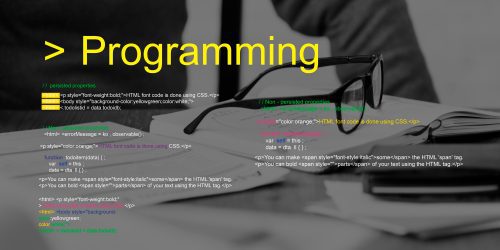
Python Programming for Biologists: For Beginners
Unleash the Power of Python in Biology: Code, Analyze, Innovate
“Python Programming for Biologists: For Beginners” is a tailored course designed to introduce Python to biologists who have little to no programming experience. Over the span of one month, the program focuses on teaching Python basics, data handling, visualization, and the application of these skills in solving real biological problems. Participants will learn through a mix of lectures, hands-on projects, and interactive coding sessions, ensuring they gain practical experience alongside theoretical knowledge.
The course also integrates case studies from biology, providing context to the power of Python in genomics, ecology, bioinformatics, and other fields. By bridging the gap between computational methods and biological insights, this program aims to foster a generation of biologists who are not only proficient in their domain but also skilled in leveraging computational tools to advance their research.
Aim: This program aims to empower biologists with the foundational Python programming skills necessary to analyze biological data, automate laboratory tasks, and enhance research methodologies. By the end of this course, participants will be well-equipped to harness the power of Python in modern biological research and data-driven decision making.
Program Objectives:
- Introduce the basics of Python programming and its environment.
- Teach data manipulation, visualization, and analysis techniques.
- Demonstrate the application of Python in solving biological data challenges.
- Develop skills to automate routine data processing tasks.
- Foster the ability to independently solve problems using programming.
What you will learn?
- Basic Python Syntax: Participants will become familiar with the fundamental syntax and structure of the Python programming language, including variables, data types, operators, and functions.
- Data Structures: The workshop will cover essential data structures such as lists, tuples, dictionaries, and sets, exploring how these structures can be used to store, manipulate, and organize biological data.
- Control Flow: Participants will learn about control flow statements such as loops and conditional statements, enabling them to control the flow of execution in their Python programs and automate repetitive tasks.
- File Handling: The workshop will teach participants how to read from and write to files in Python, allowing them to work with various data formats commonly encountered in biological research, such as text files and CSV files.
- Biological Data Analysis: Participants will learn how to perform basic data analysis tasks using Python, including data manipulation, filtering, sorting, and aggregation, with a focus on biological datasets.
Intended For :
- Undergraduate degree in Biology, Biochemistry, or related fields.
- Professionals in the biomedical, pharmaceutical, or agricultural sectors.
- Individuals with a keen interest in bioinformatics and computational biology.
Career Supporting Skills
